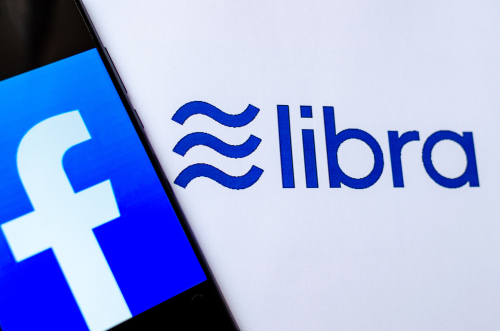Facebook has become an essential part of our social, cultural, economic and political spheres. Now it is looking to become our new global payment system. This was the announcement that came last week from the Libra Association (led by Facebook) along with a whitepaper about the creation of a new cryptocurrency called Libra and its accompanying digital wallet, Calibra.
The first digital currency, Bitcoin, was followed by many others: Ethereum, Dodgecoin, Litecoin, Ripple, XEM, Dash, Monero, Petro, etc. Apparently, we will now have one more as early as the first half of 2020. However, this is not going to be just “one more” as Libra looks more like a fiat currency than a cryptocurrency. In other words, with the gold standard consigned to the history books, along comes the all-powerful Facebook to create a digital currency backed by a basket of financial assets.
Facebook is not alone in this endeavour. Companies like Visa, Mastercard, PayPal, Spotify, eBay, Vodafone, Booking, Mercado Pago and Thrive Capital are among the 28 founding members of the Libra Association that will govern Libra. The goal is to reach 100 members before the official launch of the digital currency. Besides the sheer weight of the consortium of businesses backing the currency, if we add into the equation the 2.32 billion active users enjoyed by Facebook each month (one third of the world’s population), it is not hard to image the potential reach of this new cryptocurrency.
In many respects, the use of blockchain technology for Libra is quite different from the other digital currencies we know about today. Quite the opposite, in fact. The Libra whitepaper rejects the idea of anonymity and secrecy in transactions and the Libra Association has already confirmed its collaboration with financial regulators to prevent money laundering and tax avoidance.
A further crucial difference with Libra is the backing of a reserve of low volatility assets including bank deposits and short-term government debt in stable currencies like the dollar, euro, Swiss franc and yen. That said, we will need to have faith that the Libra Association will maintain these assets, record transactions and that Libra itself will be fungible, etc. Ultimately, this is the same faith we currently have in the central banks, except for a couple of important distinctions: Facebook is a private entity but it will hold some underlying assets, whereas central banks are public bodies but they do not hold assets that fully support currency issuance.
Of course, misgivings and controversies are already springing up regarding matters like data protection and the use of information in such a high-profile project. Let us not forget that Facebook possesses a vast archive of personal data from its users, about whom it knows practically everything. Many of us have not forgotten about the fines imposed on Facebook by the European Union for controversies like this and the scandal surrounding Cambridge Analytica, the consulting firm that unlawfully used information gathered from 87 million Facebook users.
Following the announcement of Libra’s creation, it is inevitable that the reflections that have been floating around for some time regarding cryptocurrencies come to the forefront once again. For example, questions are being asked about the implications for central banks and monetary policy in the event of the widespread use of a payment system like Libra, which employs blockchain technology although with a different objective to other digital currencies like Bitcoin. At first glance, it may look like an attempt to undermine the power of central banks. But curiously, as one analyst has already pointed out, in the context of a financial crisis, it could reinforce the impact of negative interest rates as it would eliminate the possibility of hoarding physical currency and other means of avoiding negative rates.
According to the whitepaper on the creation of Libra, it is “a simple global currency and financial infrastructure that empowers billions of people”. For now it is just a fledgling project, but it is certainly an interesting one.
Column by Meritxell Pons, Director of Asset Management at Beta Capital Wealth Management, Crèdit Andorrà Financial Group Research.





 By Fórmate a Fondo
By Fórmate a Fondo